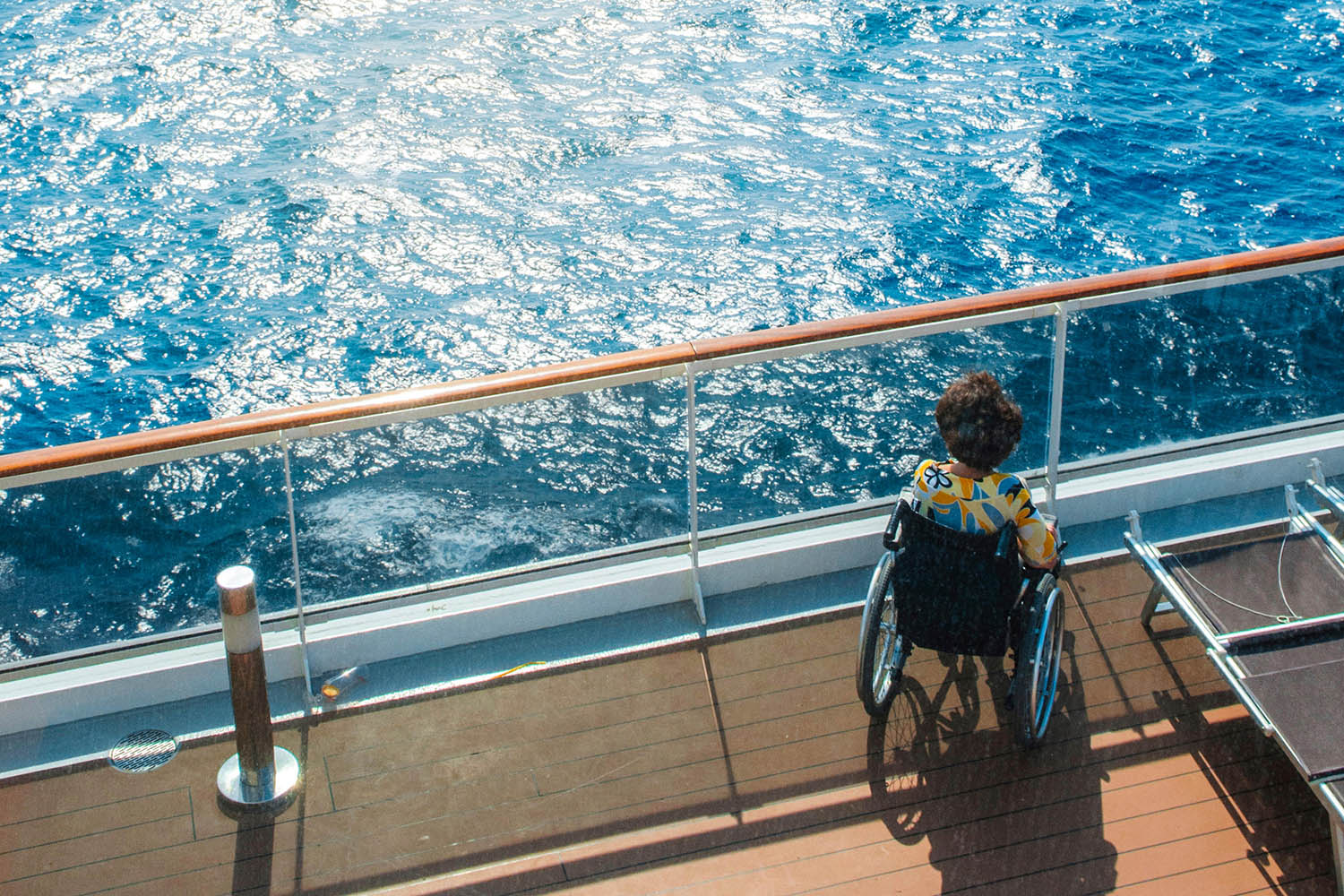It was on a ferry to Bilbao from Southampton, teetering on the edge of a low bunk and sobbing with exhaustion, that I learned the first rule of accessible accommodation. Which is that it probably isn’t. Not for me, anyway.
The bottom bunk of the Brittany ferry’s accessible cabin was barely 40cm off the floor. Great for small elderly people with bad hips. Great to slide into – gravity being the friend of the spinally injured – but impossible to get out of.
In the end, driven by impending humiliation at the hands of burly French crewmen, I resorted to physics. I rolled to and fro, building up enough pillows under my bottom to be able to haul myself up onto the 60cm-high wheelchair. Think constructing Stonehenge, only harder.
The experience scarred me. Nowhere I have stayed over the years since – a few dozen rooms billed as disabled-friendly – has altered my conviction that dogs are better catered for than disabled humans.
The state of accessible accommodation provision is one of the last frontiers of a society we left 40 years ago. Under the 2010 Equality Act, hotels are supposed to make “reasonable adjustments” in order not to discriminate against disabled guests. In practice, it means lip service. Enforcement is pathetic, if it exists at all, and if you’re running an old hotel with metre-thick internal stone walls and narrow doorways, you just tell people no room is available.
Nor are there regulations for what constitutes a standardised accessible room, let alone an optimised one. I could moan for weeks about carpets too thick to push over, door sills too high to climb, bathrooms too small to turn in, rooms too full of furniture to reach the bed. It’s a rubbish situation.
Frankly, as things stand, the disabled traveller has a choice: make it work somehow, or cease to travel. Sadly, for far too many, it’s the latter.
I have some sympathy with small hotels. How to define reasonable, for a start. Accessibility needs vary spectacularly – between me, say, and someone ambulant but partially sighted. Wheelchairs vary as much as cars. Beds can be too low or too tall depending on the individual. We are all different.
My conviction is that dogs are better catered for than disabled humans
My conviction is that dogs are better catered for than disabled humans
And always the wind of profit blows. Premier Inn accessible rooms used to work superbly for me. Perfect-height beds; bed raisers if they weren’t. But now the beds (in otherwise slick rooms) are too low, and staff tell me they can no longer be raised. I can only presume a greater number of small, frail, elderly ambulant people wanted low beds than there were spinal patients seeking wheelchair-height ones. Economics suck. But they rule.
There’s an odd twist in this shabby tale of inadequate provision. Research shows at least 26% of able-bodied travellers refuse to stay in accessible rooms – which is obviously why many hotels make only a token effort. During high demand, if your accessible rooms aren’t filled by disabled people and yet healthy people reject them, you’re losing money. (As to why the healthy reject them, your guess is as good as mine. Maybe they think they’ll catch something Online chats suggest the rooms aren’t considered luxurious; plus people dislike low hand basins and showers which wet the floor. One hotel receptionist believed guests see it as a downgrade: they consider they’re higher status than an accessible room.)
Oh well. This weekend, this second-class citizen gathers her tattered confidence for another joust with a strange bed: I’m flying to Europe to stay in an untested hotel. I phoned before I booked, but God knows what awaits me. Whatever happens I’m sure I’ll survive, though my dignity may not.
Melanie Reid is tetraplegic after breaking her neck and back in a riding accident in April 2010
Newsletters
Choose the newsletters you want to receive
View more
For information about how The Observer protects your data, read our Privacy Policy

